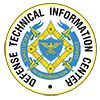Technical Focus Areas
Novel, nontraditional, and emerging sources and technologies for harvesting, generating, storing, transmitting/transporting, and reusing energy.
The automated methodology to uniquely identify humans using their physiological or behavioral attributes.
The process of minimizing the impacts and effects of chemical, biological, radiological, and nuclear (CBRN) events through detection, recognition, and technological initiatives.
The protection of infrastructure and resources critical to national security, including national infrastructure, physical and virtual systems, cyberinfrastructure, and continuity of operations.
Cultural Studies involves cultural and sociological analysis – research into the ideology, political, and economic nature of a culture to better understand its people and government for national security purposes.
Homeland Security & Defense is composed of counterterrorism, environmental security, aviation security, law enforcement, fraud protection, building and facilities security, border security, disaster/emergency response and recovery, and cybersecurity/information management.
Medical includes any facet of medical research relating to homeland defense and security, public health/global health, or military operations.
Weapons of Mass Destruction are defined as chemical, biological, radiological, or nuclear weapons or devices capable of a high order of destruction and/or causing mass casualties.

